House* L - School for Serbian Language and Culture + Hostel
Two different but complementary functions of the building are organized in the overlapping sequences of different types of spaces and ambiances. The overall character of the building is open and inviting, aiming to include the city into the life of the school and its activities.
The school of Serbian language and culture, with a hostel, is located in Valjevo, small city in west of Serbia. The object is situated on one of the hills of the wider city center, among the private houses of similar or smaller volume. In order to meet the clients needs for diverse space types but also to adequately correspond to the surrounding ambience, the architecture of the object is designed as a quiet neighbor who also uses all the benefits of the location to realize different spatial qualities.
A narrow and sloped lot, with an outstanding view towards the cityscape as well as a mixed function of the object, were the main motives for architectural and spatial conception.
The winded and branched communication line, from the entrance point to the flat roofs or to the hidden backyard, and the series of micro-ambiences with different functions (an open classroom with stand, a courtyard under vines at the lowest level, and so on) were the goals to achieve by shaping the form divided in two volumes, gathered in a dynamic composition by virtue of the rotation and elevation, and carefully placed openings and connections.
The school object is designed to house a private language school, known for its successful and well-visited summer courses, which gather mainly international students of Slavic languages. Therefore, the visual contact with the local urban landscape and its surroundings acts not only as one of the visual but also educational addition to the experience of the users.
The main structure of the building is designed as the system made of reinforced concrete wrap – façade walls, and full floor slabs in the same material. Interiors of the volumes are designed as open spaces, divided according to actual needs of the user by the light wall partitions or the glass panels. Overall selection of the materials, the construction methods, as well as the quality of the finishing works, all correspond to the lower price range of the construction and the local now-how of an average quality. The main architectural goal was to build the plural ambiances and meaningful spatial impressions.

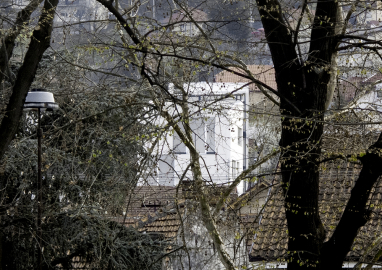 © re:a.c.t
© re:a.c.t
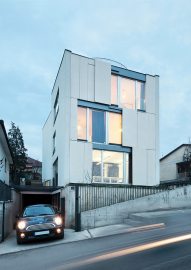 © Relja Ivanić
© Relja Ivanić
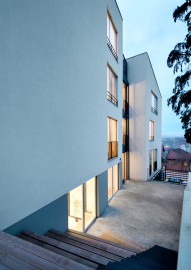 © Relja Ivanić
© Relja Ivanić
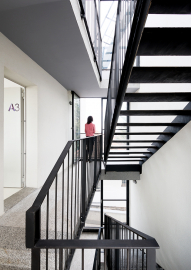 © Relja Ivanić
© Relja Ivanić
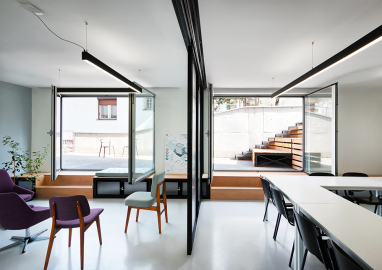 © Relja Ivanić
© Relja Ivanić
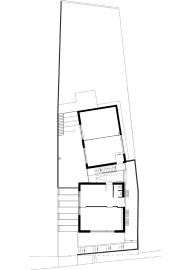 © re:a.c.t
© re:a.c.t
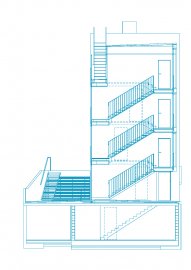 © re:a.c.t
© re:a.c.t
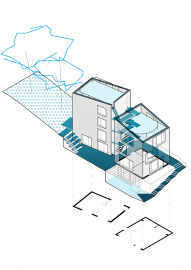 © re:a.c.t
© re:a.c.t
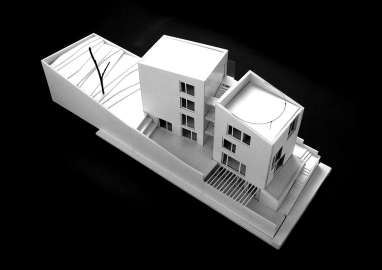 © re:a.c.t
© re:a.c.t